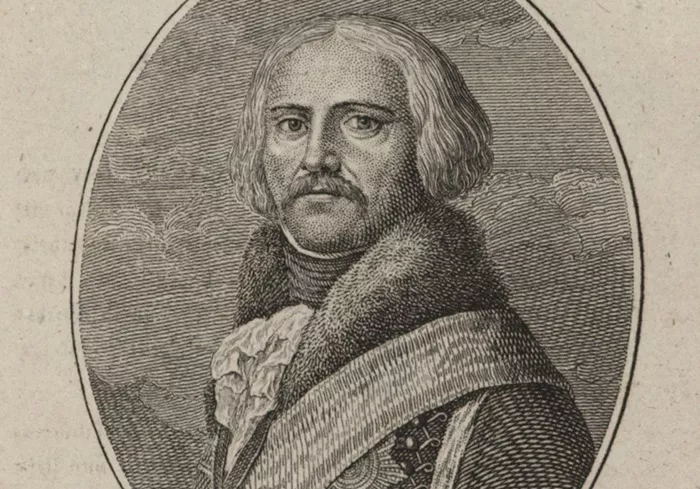The 19th century was a transformative period for German poetry, marked by Romanticism, nationalism, and religious reawakening. Among the many poets of this era, Lebrecht Blücher Dreves (1816–1870) stands out for his lyrical expressions, religious devotion, and literary contributions. His poetry, influenced by Romantic ideals and later by Catholicism, reflects the shifting cultural and spiritual landscape of his time.
Early Life and Education
Lebrecht Blücher Dreves was born in 1816 in Hamburg, Germany. He was named after the Prussian military leader Gebhard Leberecht von Blücher. Dreves showed an early interest in literature and began writing poetry as a young man. He submitted his early works to renowned poets of the period, such as Adelbert von Chamisso and Gustav Schwab, who encouraged his literary aspirations. Despite his deep love for poetry, he pursued a formal education in law, earning a Doctor of Laws degree with high honors. However, his passion for poetry remained strong, and he continued to develop his craft alongside his legal studies.
Literary Career and Romantic Influence
Dreves’ early poetry is deeply rooted in German Romanticism, a movement that emphasized individual emotion, nature, and the sublime. His collections, such as Lyrische Anklänge (1837) and Vigilien (1839), display the influence of poets like Ludwig Uhland, Friedrich Rückert, and Heinrich Heine. These works focus on themes of love, heroism, and the fleeting nature of life.
In 1843, Dreves anonymously published Schlichte Lieder, a collection of poems that included battle songs reflecting his patriotic sentiments. This work resonated with the broader nationalistic fervor that characterized 19th-century German poetry.
Religious Conversion and Poetic Transformation
A major turning point in Dreves’ life came in 1846 when he converted to Catholicism. This religious transformation had a profound impact on his literary output. Many of his later works took on a devotional quality, expressing faith and spiritual reflection. He began translating and adapting Latin hymns into German, making them more accessible to a broader audience. His poetry increasingly focused on religious themes, reflecting the growing importance of Catholic traditions in his life.
One of his significant religious works, Lieder der Kirche (1846), showcases his dedication to faith-inspired literature. This collection includes adaptations of church hymns and sacred poetry, which helped preserve and propagate Catholic spiritual traditions in Germany.
Contributions to Translation and Scholarship
Beyond original poetry, Dreves was an accomplished translator. His translations of medieval Latin texts and religious hymns played a crucial role in preserving historical literature. He translated the Nachtigallenlied, a medieval religious poem, and Vita Ansgari, a biography of Saint Ansgar. These works introduced German readers to important historical and religious texts.
Dreves also contributed to historical scholarship by editing Annuae Missionis Hamburgensis 1589–1781, a collection documenting the history of Catholic missions in northern Germany. This editorial work demonstrated his dedication to both religious and literary preservation.
Literary Friendships and Influence
Dreves was part of a literary circle that included Joseph Freiherr von Eichendorff, another prominent 19th-century German poet known for his religious and lyrical poetry. Eichendorff played a role in revising and republishing some of Dreves’ poetic works, highlighting their shared literary and spiritual interests.
Additionally, Dreves formed a close friendship with Gall Morel, a Catholic poet, after relocating to Feldkirch in Austria. Their discussions and exchanges further solidified Dreves’ literary and religious pursuits.
Comparison with Contemporary Poets
Dreves’ work can be compared to that of other 19th-century German poets who explored themes of religion and nationalism. Heinrich Heine, for instance, is known for his sharp wit and political satire, while Friedrich Rückert focused on Orientalist themes and personal grief. In contrast, Dreves’ poetry stands out for its blend of Romantic lyricism and deep Catholic devotion.
His focus on religious poetry aligns more closely with Joseph von Eichendorff, who also infused his poetry with Christian themes. However, while Eichendorff’s work often celebrated the mystical beauty of nature as a divine creation, Dreves’ later poetry was more focused on the historical and liturgical aspects of Catholicism.
Legacy and Influence
Lebrecht Blücher Dreves’ contributions to German poetry and religious literature remain significant. His efforts in translating hymns and medieval texts ensured that historical religious works were accessible to later generations. His son, Guido Maria Dreves, continued his father’s literary legacy by compiling the Analecta hymnica medii aevi, a vast collection of medieval hymns.
While Dreves may not be as widely recognized as some of his contemporaries, his influence on religious poetry and his role in preserving Catholic literary traditions cannot be overlooked. His work bridges the gap between Romantic poetry and religious devotion, providing valuable insights into the cultural and spiritual dynamics of 19th-century German poetry.
Conclusion
Lebrecht Blücher Dreves represents a unique voice in 19th-century German poetry, merging Romantic themes with Catholic devotion. His early poetry reflects the influence of Romanticism, while his later works showcase his deep commitment to religious literature. Through his translations and editorial work, he contributed significantly to the preservation of religious texts in the German language.
By examining his life and work, we gain a richer understanding of the diverse literary movements that shaped German poetry during the 19th century. Dreves’ legacy continues to be relevant in discussions of faith, literature, and national identity in German literary history.

